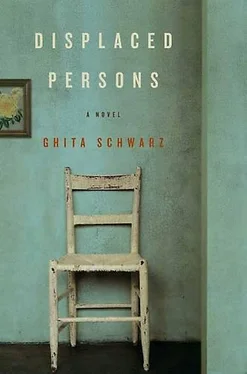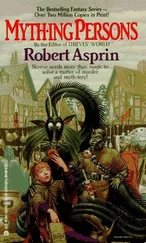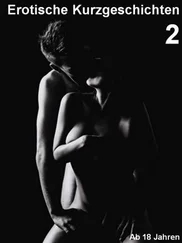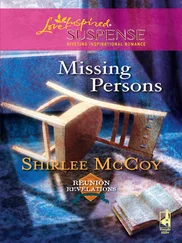In one of the men’s coats-he and Fishl let them depart with only their jackets-was a velvet pouch. They leaned against a birch and opened the soft bag. Two dozen tiny stones.
Is it something? Fishl said. Can you see?
It is something, he answered. In the first work camp a cutter, an older man whose labor he had done on occasion, had taught him to recognize cracks and facets in a diamond. They had been able to keep some of their possessions then, and the man had taken out his loupe and his dead wife’s ring and made him understand how to see. Now in the forest, he and Fishl could only guess. But would men wear wool coats in spring for a velvet pouch of glass?
He took twelve of the diamonds and replaced them in the little bag. Fishl wrapped the other twelve in a scrap of paper, wrapped the paper in a handkerchief, pushed the handkerchief into the bottom of his rucksack. They rolled money into their rucksacks, into their new coats, into their shoes. Now it was he and Fishl spilling over with dirty gold, possessions stripped from the living as they were pushed through the gate of the dead. Spilling over with dead men’s money, dead women’s jewels. He and Fishl might be thin, they might think every hour of the bread they kept in their rucksacks, but already the hunger felt less like a stabbing and more like an itch, for here was the promise of food and more food, for weeks, perhaps even months. They were heavy, solid. Not so heavy that they could not walk-how ignorant these Germans were, how unschooled in the methods of carrying the world on their bodies-but enough so they could not run. The functionaries had run. But he and Fishl would stroll, coats over their arms, walking along the inner perimeter of the woods like two university students observing nature, breathing the green air. They had money. They had money, and they were together. Money could sometimes take the place of force and strength. The fleeing Germans had been right to try and hold on to their bloodstained gold; it could help them. But look how quickly they had given it up!
IN THE REMAINS OF a bombed-out train station at dusk they found an old woman begging for food. Papers and gold safely tucked into their clothes, they showed her their tins of fish and meat from the British and followed her to her house. She showed them to a large empty room upstairs. There was room for both of them in the bed, and they lay down, each covered with a blanket.
All day and all evening the excitement of ownership had made his skin tingle. But now the tingling had become an itch, an uncomfortable dryness on his back and arms. A small chill came over him, and he folded his knees close to his chest.
Fishl, he said.
But Fishl was already breathing in short gasps and snores. Fishl could sleep through fear and thirst. It was a gift, a great piece of luck, a talent, to stop oneself from reflecting and thinking, to conquer the dread with a command to the body: sleep, sleep. His back pressed into the thin mattress, and he breathed in and out. It was good to have a bed again, after the few days in the British military headquarters, where each of them had been given a cot for a few nights, then sent on their way.
He turned on his side, curled his spine. His eyes had adjusted to the darkness, and he looked at the dull wall. A framed drawing of a tulip hung above the chest of drawers, the only decoration. The petals of the tulip were open, one petal almost falling away from the flower. The old woman had a garden. She was afraid to have men in the house. She had walked behind them after opening the door to the house, waited until they climbed the stairs before she herself came up. They had arrived just before nightfall, and at the corner of the road they had seen three houses crushed inward, the skeletons of rooms only half-standing. But this part of the street was untouched. Yet it seemed no one else came to give her food. He shook his head in anger at himself-should he feel sorry for this woman, alone but safe? The walls of her home were still intact and her blankets had not yet been sold for food-this was not a suffering to pity. His grandmother should have had such a decision to make, his father should have suffered so! No, he was not sorry. He thought of the food the old woman would cook them in the morning, perhaps coffee and the fish warmed from the tin. They would trade for her, they would keep their part of the bargain.
Sleep, sleep. In camp he had not been able to fall asleep quickly, the constant fear of the next day troubling him into the night. But now, even with an empty day before him, he felt the same inability to translate his fatigue into rest. Fishl’s snores had faded into strong breaths. He tucked his hand underneath his trousers, pushed his fingers into the hidden pocket, felt for the cotton bag he had sewn to the inside. The cotton was still there, its slim contents pressing against his thigh. He rubbed his thumb and forefinger together, the cloth warming his hand. A cotton strip of handkerchief, that was all, but it held his most precious possessions. Photographs, one of his mother and one of his father. He liked to touch the handkerchief that protected them, but he did not want to squint in the dark. And they would be spoiled by their exposure to the damp air. He had taken them out so often that when he remembered his mother and father now, he saw them as they were in the pictures, their bodies creased and wrinkled, their skin the color of brown stone, their mouths steady and grave. No, he would not take them out. One had to be careful, not greedy, even with a photograph. One survived a prison if one kept his secrets hidden, as Joseph had survived his prison in Egypt, emerging to bring his family out of hunger, to see his father, who wept that the favored son was alive. There was no seeing his father now, he knew. But he had had contact with his sister in 1943, and with his second brother a short time earlier. Even a cousin-his aunt’s boys, they were strong ones-perhaps they had come out.
He tapped his pocket again. He would give away any of his gold and stones and money, to hold on to those photographs. Still the papers and the money gave him the means to sell and to travel. The photographs might help him sleep, but the money would help him find. He dropped his arms along his sides, feeling the bones of his legs through his trousers.
STRIPES OF LIGHT CAME through the window, and he opened his eyes to a prison cell, cement walls, a damp and tattered blanket around his chest. He did not know how he had come there, but when he turned he could see Fishl lying next to him. He breathed out with relief. Then he tapped at his trouser leg, felt nothing, tapped at his breast pocket, felt no lump from a makeshift pocket, and he sat up in fear. They were gone, how could they be gone? He remembered a word he had learned from the soldiers in English: jail! Had he been searched by the British, the Americans, whoever had given this punishment? But to the new soldiers the contents of his pockets were not valuable. Just to him. Fishl, he cried, Fishl, but Fishl was silent. The air was cool, but when he felt his own neck, it was coated with sweat, and he could sense the stench of bodies-where? outside?-seeping into him, staining his skin. They could be here for weeks, rotting from hunger, shitting and eating out of the same bowl. He heard the step of the guards. Perhaps these wardens would give them other clothes, new prisoners’ clothes, take away from them the stolen wool trousers and jackets meant to make them look like ordinary citizens, humans. Yes, perhaps even these weak disguises would be taken, and they would be left with nothing but their battered faces and worn bodies as identification. He turned over on his side and watched a brown beetle make its way through the damp mud in the corner. The beetle moved slowly, with an even, careful rhythm. It buried itself inside a pile of dark sand, emerged again, then disappeared behind a crevice in the stone wall. The beetle would escape. The beetle would be free. He stretched out his hand toward the beetle and saw his arm was still covered by his own stolen jacket. This was something. Still he knew they would tear the clothes from him, tear them into strips for the hanging, and he pushed the blanket away from his body-let them take it! Let them take it already!
Читать дальше











